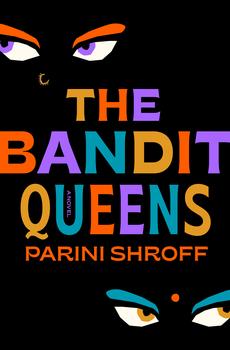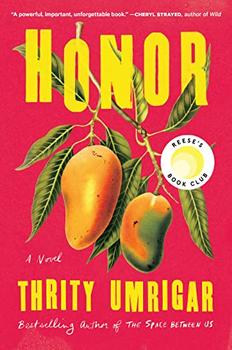Summary | Excerpt | Reviews | Beyond the book | Read-Alikes | Genres & Themes | Author Bio

A Tale of Women and Power in India
by Amana Fontanella-KhanA triumphant portrait of a fiery sisterhood changing the lives of India's women.
In Uttar Pradesh - known as the "badlands" of India - a woman's life is not entirely her own. This is one explanation for how Sheelu, a seventeen-year-old girl, ended up in jail after fleeing her service in the home of a powerful local legislator. In a region plagued by corruption, an incident like this might have gone unnoticed - except that it captured the attention of Sampat Pal, leader of India's infamous Gulabi (Pink) Gang.
Poor and illiterate, married off around the age of twelve, pregnant with her first child at fifteen, and prohibited from attending school, Sampat Pal has risen to become the courageous commander and chief of a women's brigade numbering in the tens of thousands. Uniformed in pink saris and carrying pink batons, they aim to intervene wherever other women are victims of abuse or injustice. Joined in her struggle by Babuji, a sensitive man whose intellectualism complements her innate sense of justice, and by a host of passionate field commanders, Sampat Pal has confronted policemen and gangsters, officiated love marriages, and empowered women to become financially independent.
In a country where women's rights struggle to keep up with rapid modernization, the story of Sampat Pal and her Pink Gang illuminates the thrilling possibilities of female grassroots activism.
The women of the state are generally penniless, and consequently have little legal recourse. If they are raped or beaten, often the male involved merely pays a bribe to have the case dismissed. Sampat Pal Devi and her group of women look for cases such as these and seek redress, often using unconventional methods. Sheer force of numbers is often enough to intimidate law enforcement into doing the right thing...continued
Full Review
 (930 words)
(930 words)
(Reviewed by Kim Kovacs).
Throughout Pink Sari Revolution, the stick carried by the Gulabi Gang is referred to as a pink-painted "baton." More accurately it is a lathi – a traditional Indian weapon, made of bamboo, with a long history of martial use.
 Lathi (pronounced LAH-tee) literally means "bamboo stick" in Hindi. It is widely considered to be one of the oldest weapons in the world, and its use can be traced to aboriginal times throughout what is now eastern India and Bangladesh. Made from the male bamboo, it is usually six to eight feet long and is sometimes bound at intervals with iron rings or tipped with a metal blunt. It is an inexpensive, readily available weapon that is extremely effective at close range, operated by swinging like a bat or ...
Lathi (pronounced LAH-tee) literally means "bamboo stick" in Hindi. It is widely considered to be one of the oldest weapons in the world, and its use can be traced to aboriginal times throughout what is now eastern India and Bangladesh. Made from the male bamboo, it is usually six to eight feet long and is sometimes bound at intervals with iron rings or tipped with a metal blunt. It is an inexpensive, readily available weapon that is extremely effective at close range, operated by swinging like a bat or ...

If you liked Pink Sari Revolution, try these:

by Parini Shroff
Published 2024
A young Indian woman finds the false rumors that she killed her husband surprisingly useful—until other women in the village start asking for her help getting rid of their own husbands—in this razor-sharp debut.

by Thrity Umrigar
Published 2022
A Reese's Book Club Pick! In this riveting and immersive novel, bestselling author Thrity Umrigar tells the story of two couples and the sometimes dangerous and heartbreaking challenges of love across a cultural divide.
I find that a great part of the information I have was acquired by looking something up and finding something else ...
Click Here to find out who said this, as well as discovering other famous literary quotes!